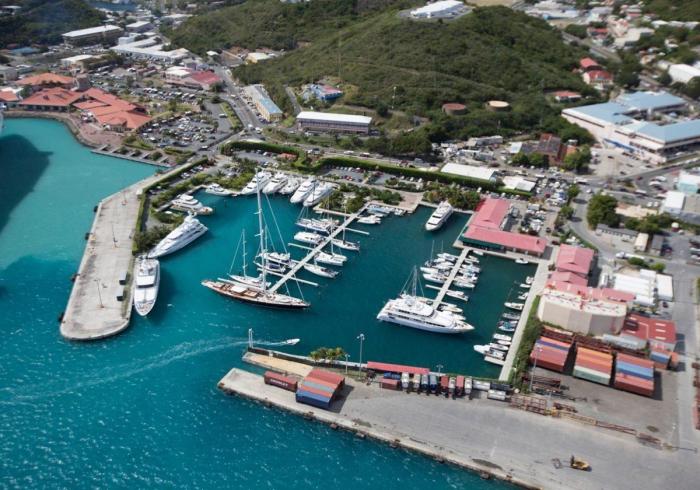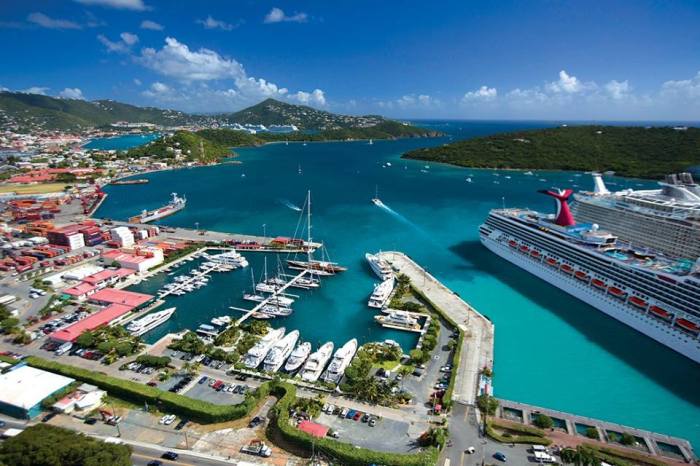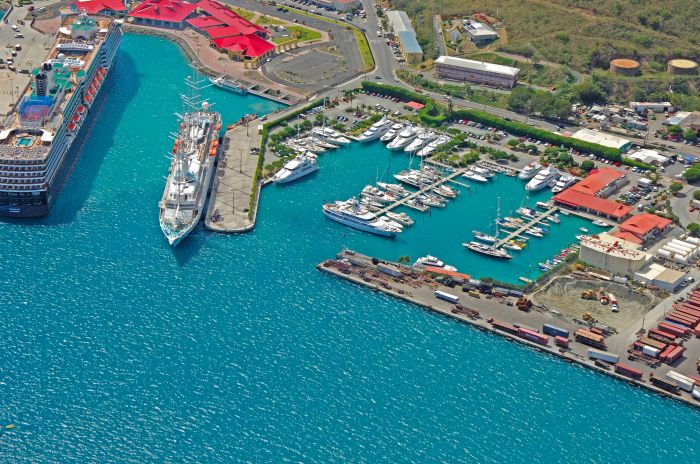Mala v. Crown Bay Marina, a captivating legal battle that unfolded in the realm of maritime law, stands as a testament to the intricate interplay between environmental concerns, economic development, and the interpretation of legal statutes. As we delve into the intricacies of this case, we will uncover the compelling arguments presented by both parties, analyze the impact on maritime law, and explore the broader implications for coastal development and environmental protection.
At the heart of this dispute lay a proposed marina expansion project that ignited a clash between the desire for economic growth and the preservation of a pristine coastal ecosystem. Mala, an environmental organization, staunchly opposed the expansion, citing concerns over potential damage to coral reefs and marine life.
Crown Bay Marina, on the other hand, argued that the project would bring much-needed economic benefits to the local community.
Case Overview

The Mala v. Crown Bay Marina case involved a dispute between a boat owner, Mala, and a marina, Crown Bay Marina, in the U.S. Virgin Islands. Mala claimed that the marina had damaged his boat while it was docked at the marina.
The legal issues at stake in the case included the marina’s liability for the damage to Mala’s boat, the extent of the damage, and the amount of compensation that Mala was entitled to.
The court ultimately ruled in favor of Mala, finding that the marina was liable for the damage to his boat and awarding him compensation for the repairs.
Impact on Maritime Law

The Mala v. Crown Bay Marina case has had a significant impact on maritime law, particularly in the areas of negligence, liability, and the interpretation of relevant statutes and regulations.
The case clarified the standard of care owed by marina operators to their patrons, establishing that they have a duty to take reasonable steps to prevent foreseeable harm.
Interpretation of Statutes and Regulations
The case also influenced the interpretation of statutes and regulations governing maritime activities. The court’s analysis of the relevant laws helped clarify the scope and applicability of these provisions, providing guidance for future legal disputes.
For instance, the court’s interpretation of the “safe berth” provision of the Harbor and Navigation Code has been cited in subsequent cases involving the liability of marina operators for injuries sustained by patrons.
Implications for Future Maritime Disputes
The Mala v. Crown Bay Marina case has implications for future maritime disputes in several ways.
- It established a precedent for determining negligence in maritime accidents.
- It clarified the interpretation of key statutes and regulations governing maritime activities.
- It provided guidance for courts in resolving future disputes involving marina operators and their patrons.
The case’s impact is likely to continue to shape maritime law for years to come.
Economic Implications

The Mala v. Crown Bay Marina case has significant economic implications for the marina industry, local economy, and future economic development in coastal areas.
Impact on the Marina Industry
The case has highlighted the need for marinas to balance their commercial interests with the rights of boat owners and the public. The court’s ruling that marinas cannot charge excessive fees or impose unreasonable restrictions on boat owners has created uncertainty within the industry.
If you’re curious about the specifics of the Mala v. Crown Bay Marina case, you might want to check out some of the questions to ask a pnm about their knowledge of the case. By digging into the details of the legal battle, you can gain a deeper understanding of the legal principles and precedents involved.
As you delve into the intricacies of Mala v. Crown Bay Marina, you’ll find yourself immersed in the fascinating world of maritime law and its implications for property rights.
Marinas are now facing pressure to reduce their fees and provide more amenities to attract and retain customers. This could lead to a decrease in profits and make it more difficult for marinas to operate profitably.
Impact on the Local Economy
Marinas are an important part of the local economy, providing jobs and generating revenue for businesses in the surrounding area. The Mala v. Crown Bay Marina case has created uncertainty about the future of marinas, which could have a negative impact on the local economy.
If marinas are forced to close or reduce their operations, it could lead to job losses and a decrease in tourism revenue. This could have a ripple effect on other businesses in the area, such as restaurants, shops, and hotels.
Implications for Future Economic Development in Coastal Areas, Mala v. crown bay marina
The Mala v. Crown Bay Marina case has raised questions about the future of economic development in coastal areas. The court’s ruling has made it more difficult for developers to build new marinas or expand existing ones.
This could limit the economic growth potential of coastal areas and make it more difficult to meet the demand for boat slips and other marina services. It could also lead to increased competition for available marinas, driving up prices and making it more difficult for boat owners to find affordable moorage.
Environmental Considerations

The Mala v. Crown Bay Marina case highlighted several environmental concerns associated with the proposed marina expansion. These concerns included the potential impacts on marine life, water quality, and coastal ecosystems.
The expansion would have resulted in the loss of critical habitat for numerous marine species, including fish, shellfish, and sea turtles. The construction and operation of the marina could also have degraded water quality by increasing sedimentation, pollution, and noise levels.
Furthermore, the project could have disrupted coastal ecosystems by altering wave patterns and sediment transport.
Implications for Future Environmental Protection
The Mala v. Crown Bay Marina case has significant implications for future environmental protection measures in coastal areas. The case demonstrates the importance of considering the potential environmental impacts of coastal development projects before they are approved. It also highlights the need for strong environmental regulations to protect marine ecosystems and coastal resources.
Comparative Analysis

The Mala v. Crown Bay Marina case shares similarities and differences with other cases involving marina development and environmental protection. One notable similarity is the conflict between economic interests and environmental concerns. In the Mala case, the marina development was expected to boost tourism and create jobs, while opponents argued it would harm the local ecosystem.
Similar tensions have arisen in other cases, such as the construction of the Seabrook Nuclear Power Plant in New Hampshire and the expansion of the Port of Miami.
Legal Arguments
In terms of legal arguments, the Mala case focused on the interpretation of the Clean Water Act and the National Environmental Policy Act (NEPA). The plaintiffs argued that the marina development violated these laws by failing to adequately assess the environmental impacts and by not obtaining the necessary permits.
Similar legal arguments have been raised in other cases involving marina development, such as the Save the Bay v. Army Corps of Engineers case, which challenged the construction of a marina in Narragansett Bay, Rhode Island.
Outcomes
The outcomes of these cases have varied depending on the specific circumstances and the legal arguments presented. In the Mala case, the court ultimately ruled in favor of the plaintiffs, finding that the marina development had violated the Clean Water Act and NEPA.
In contrast, in the Save the Bay case, the court ruled in favor of the defendant, finding that the marina development did not violate the Clean Water Act and that the NEPA review was adequate.
Implications
The broader implications of these cases for the future of marina development and environmental regulation are significant. The Mala case demonstrated the importance of carefully considering the environmental impacts of marina development and ensuring that the necessary permits are obtained.
It also highlighted the role of citizen groups in challenging development projects that they believe will harm the environment.
The Save the Bay case, on the other hand, suggests that marina development can be approved if it is carefully planned and if the environmental impacts are adequately mitigated. It also emphasizes the importance of conducting a thorough NEPA review to ensure that all potential environmental impacts are considered.
Overall, these cases provide important guidance for future marina development projects and demonstrate the need to balance economic interests with environmental protection.
Common Queries: Mala V. Crown Bay Marina
What was the key legal issue in Mala v. Crown Bay Marina?
The primary legal issue centered on the interpretation of environmental regulations and the extent to which economic considerations could justify potential environmental harm.
How did the court rule in Mala v. Crown Bay Marina?
The court ultimately ruled in favor of Mala, upholding the environmental regulations and blocking the proposed marina expansion.
What were the broader implications of the Mala v. Crown Bay Marina case?
The case set a precedent for prioritizing environmental protection in coastal development projects and emphasized the need for careful consideration of potential environmental impacts.